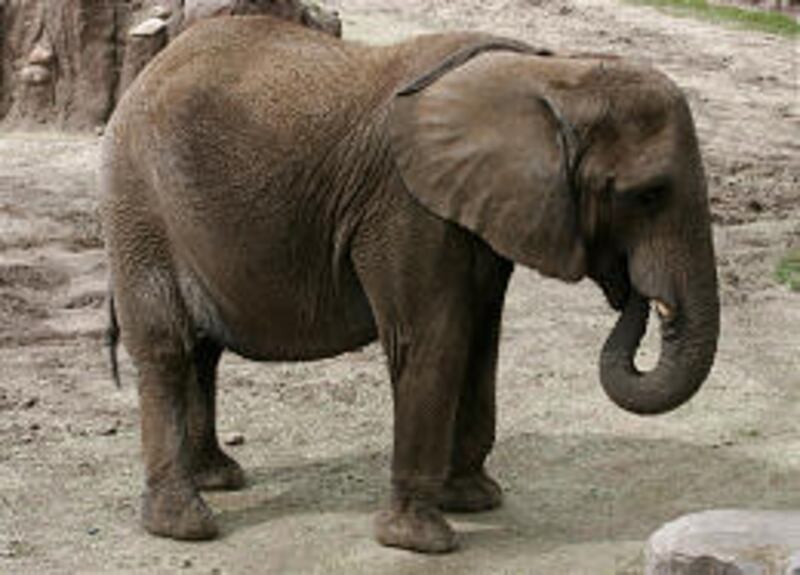For the first time in 50 years, a baby elephant could be born at Hogle Zoo, if a series of artificial inseminations goes as planned.
Christie, Hogle's 21-year-old African elephant, was inseminated once Sunday night and again Monday morning with samples from male elephants at zoos in Pittsburgh and Indianapolis. German scientists from the Leibniz Institute for Zoo and Wildlife Research in Berlin flew in for the procedure.
"Basically, it's a conservation thing," said Holly Braithwaite, Hogle Zoo's spokesperson. "We have to make sure that this species goes on. There is so much that's a threat to elephant survival in the wild."
The scientists, who are internationally known experts in artificial insemination, and zoo veterinarians tried to inseminate Christie last year, with no success. But zookeepers have been tracking her ovulation cycle for almost three years now and think they've finally determined it.
They will know in the next six to eight weeks if Christie is pregnant. This would be her first offspring, and if she is pregnant, the same team of German scientists will return to Utah a couple months later to perform the first ultrasound.
Braithwaite notes that the new elephant exhibit — Elephant Encounter, which opened in 2005 — was partially designed for a new baby. Doug Tomkinson, lead elephant keeper, said keepers are prepared to give Christie specialized training once she's pregnant.
"We will concentrate a lot on exercise, a lot of bending, stretching and climbing to keep her weight down so she doesn't have any problems during her pregnancy," Tomkinson said, adding the training mimics the walking and stretching African elephants do in the wild.
That exercise is not necessarily to keep Christie's weight low, but it helps the baby calves during the nearly two-year gestation period. Tomkinson said in some incidents, calves have been born weighing 400 pounds because the mother does not move around enough. Two hundred pounds is an ideal baby elephant weight, he added.
"We don't want too little of a calf, but we want one that's manageable for her," he said.
After a baby is born, blood tests would determine who the father is.
E-mail: astowell@desnews.com


